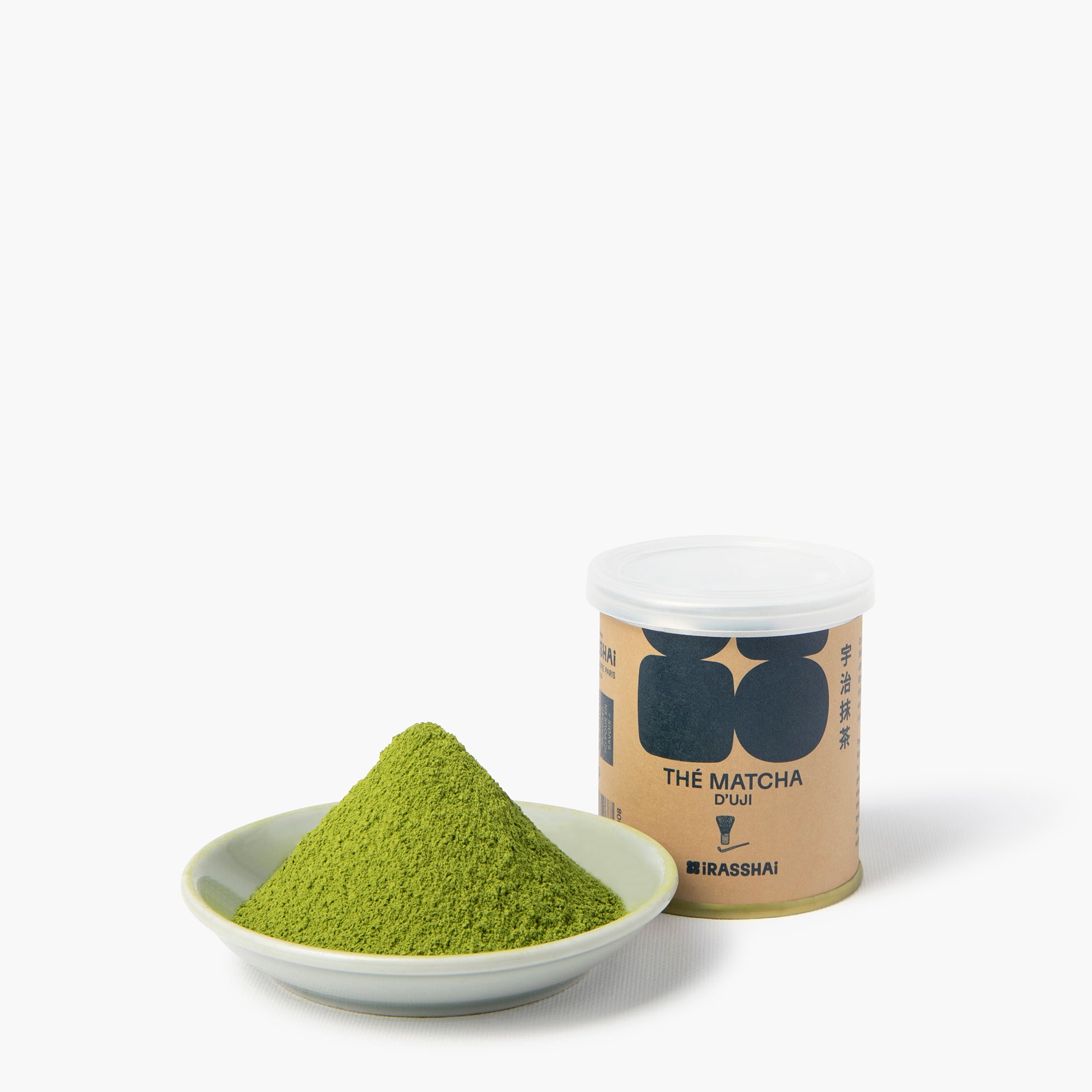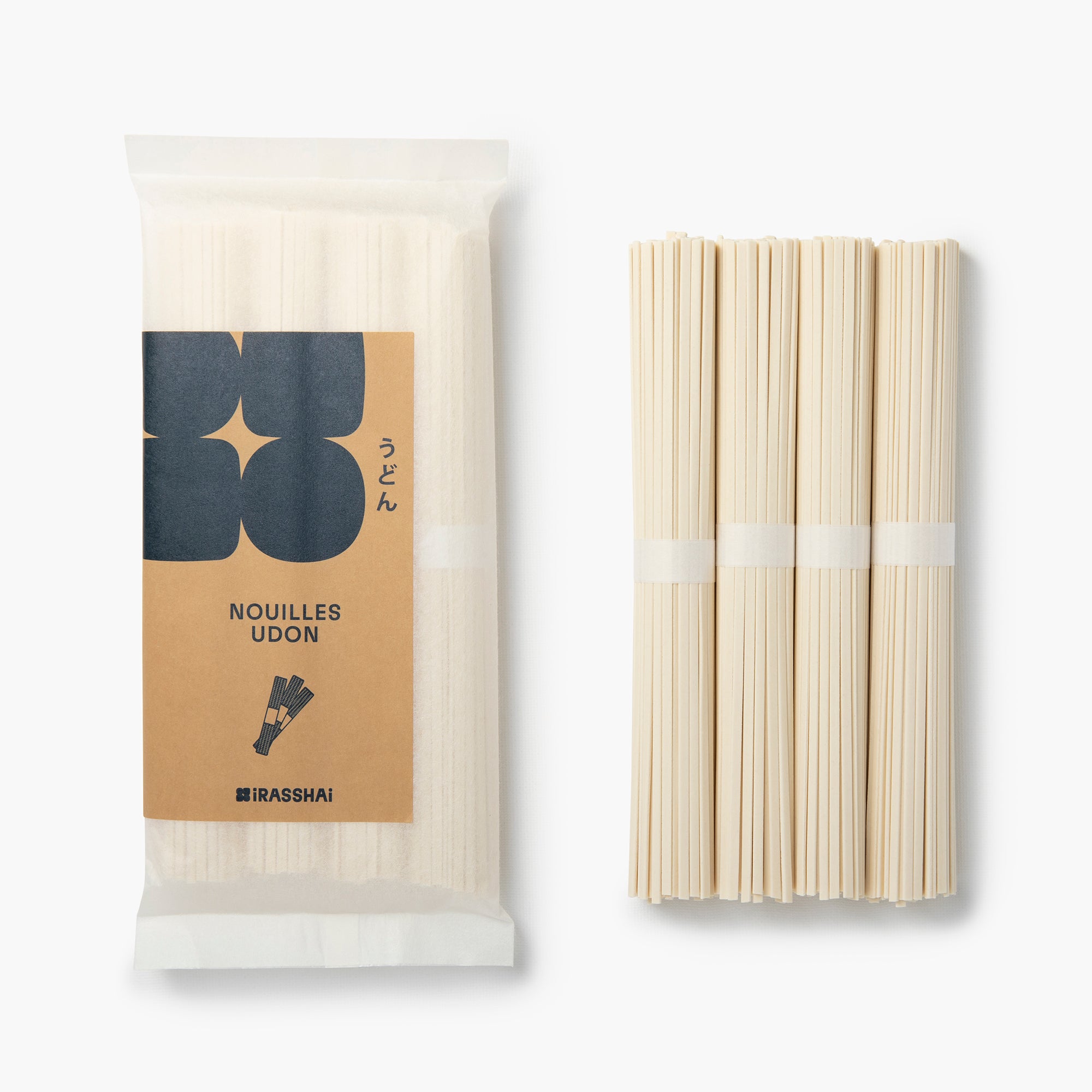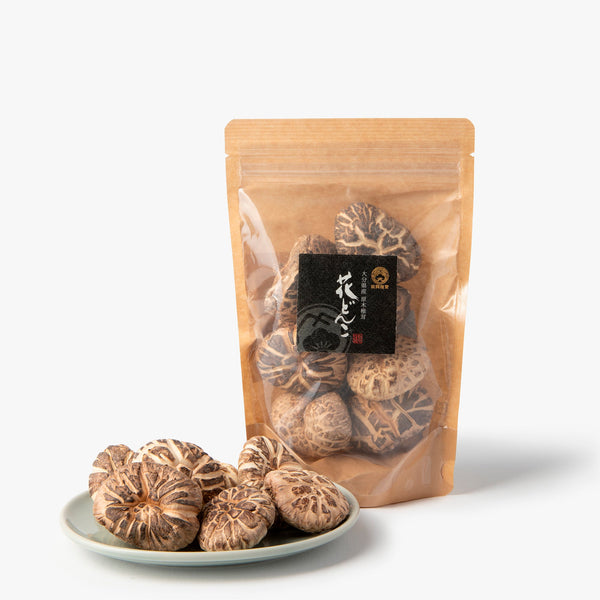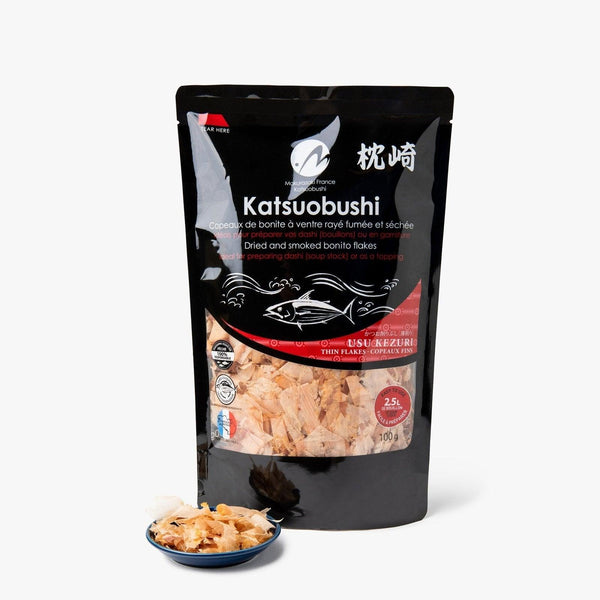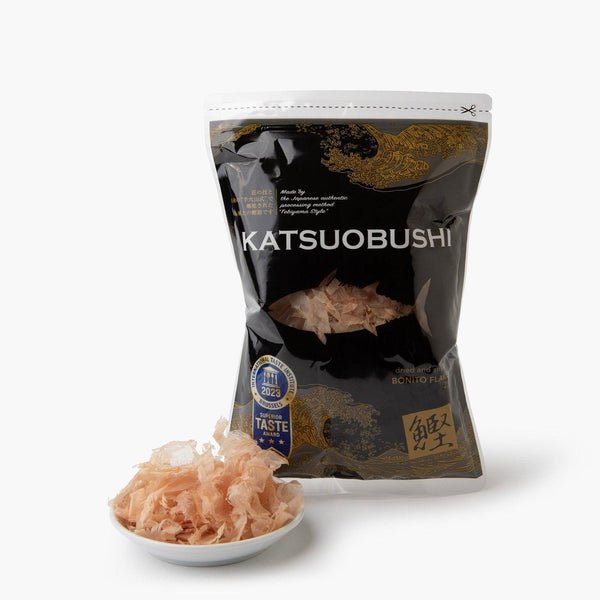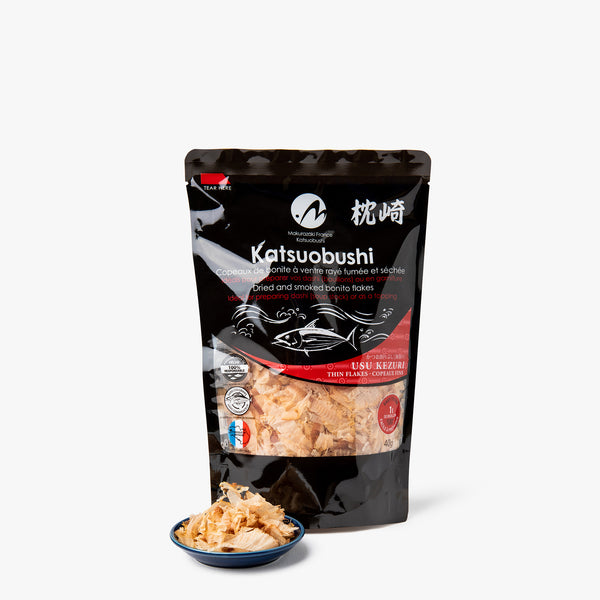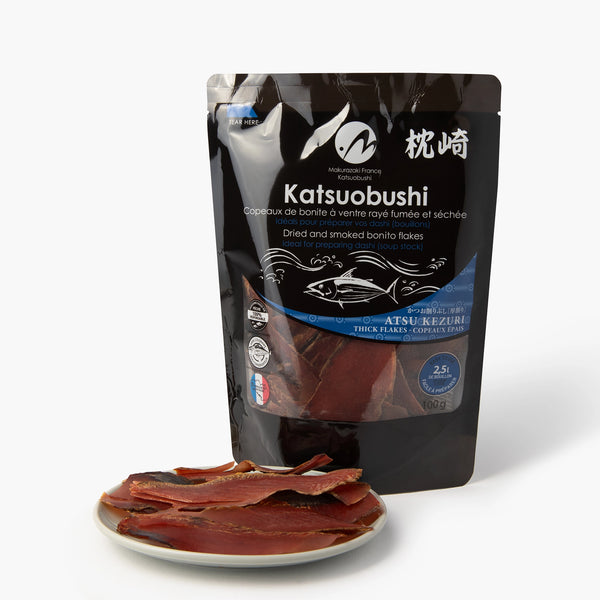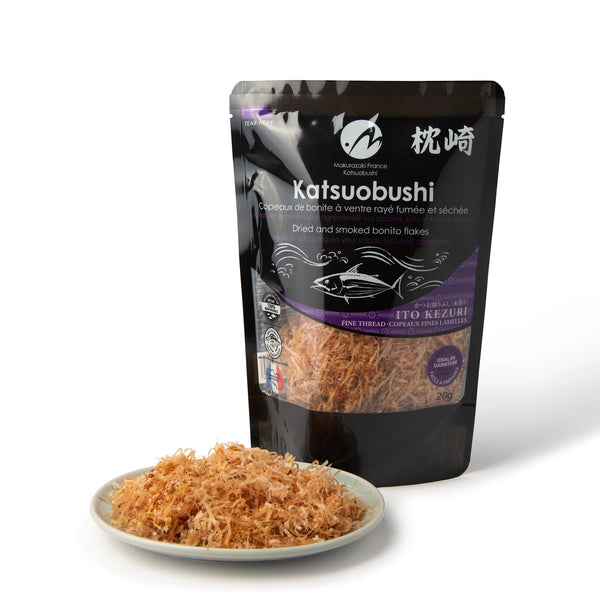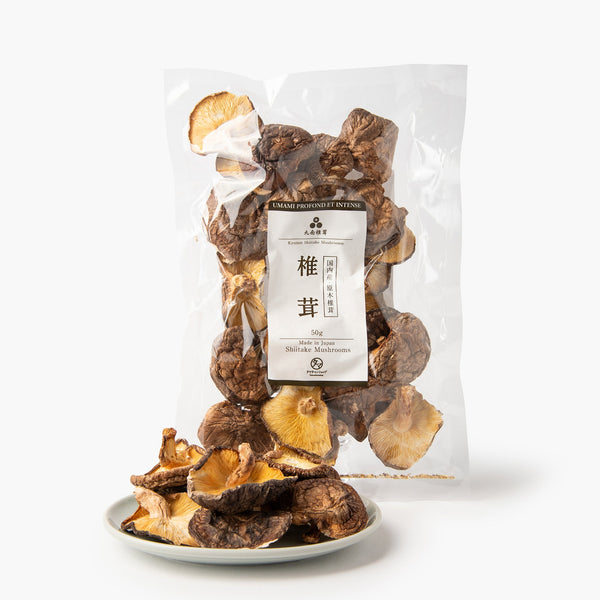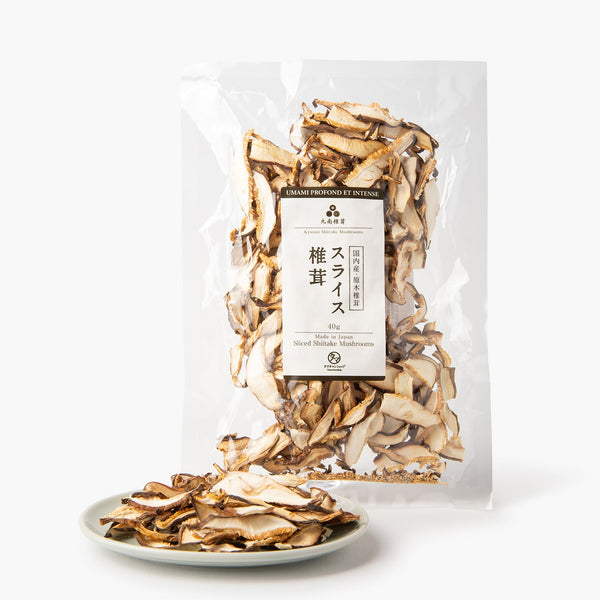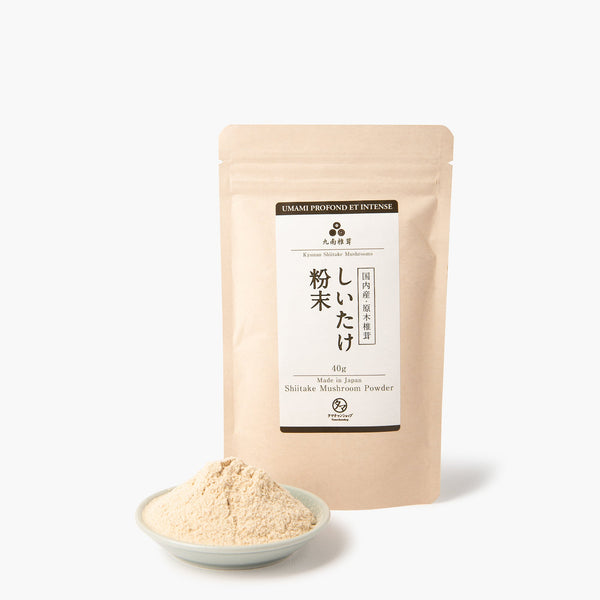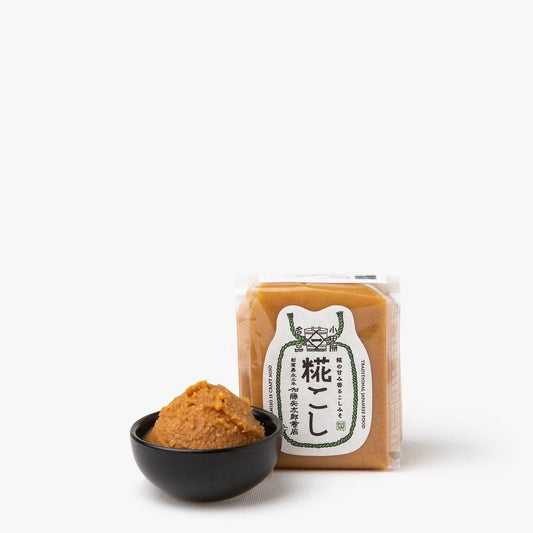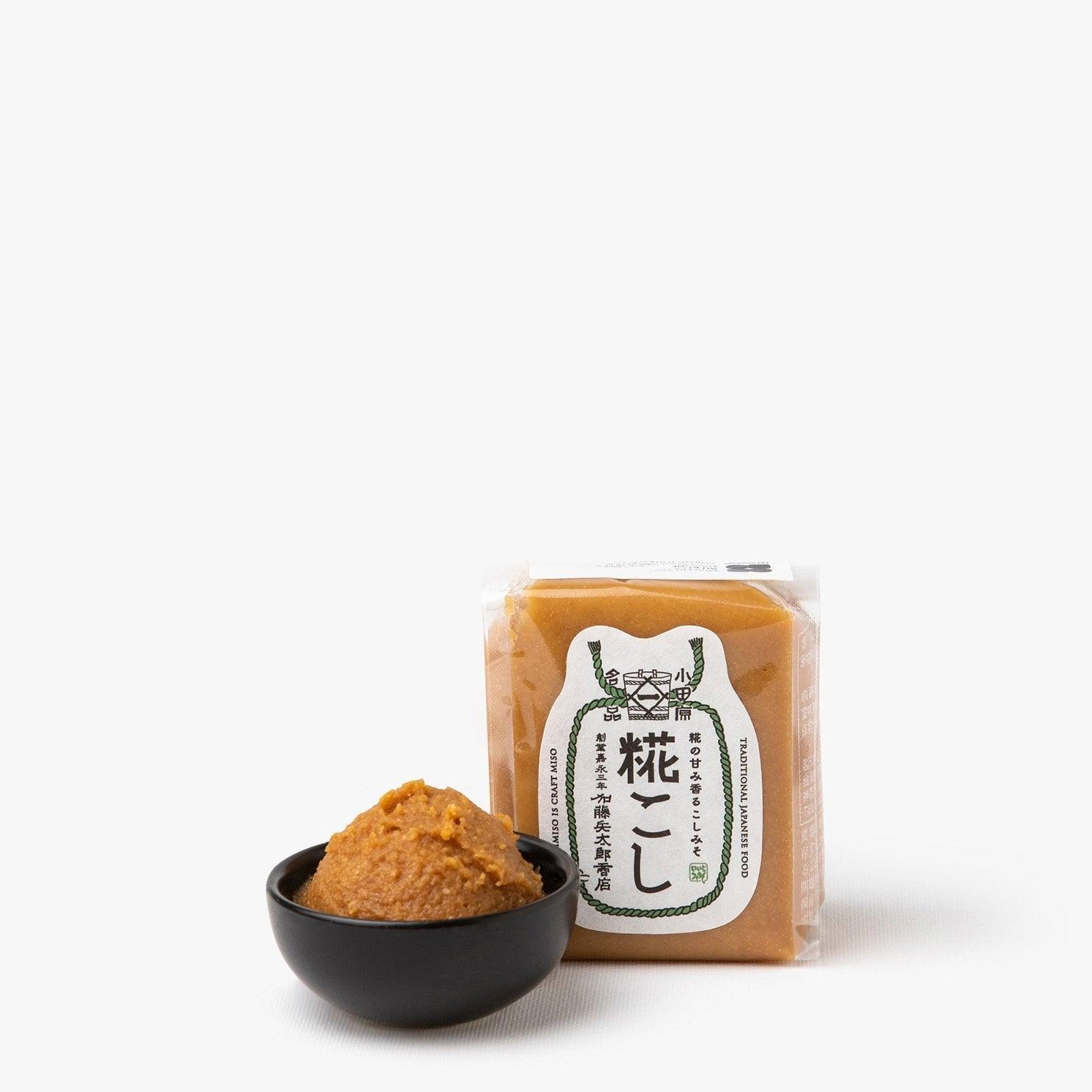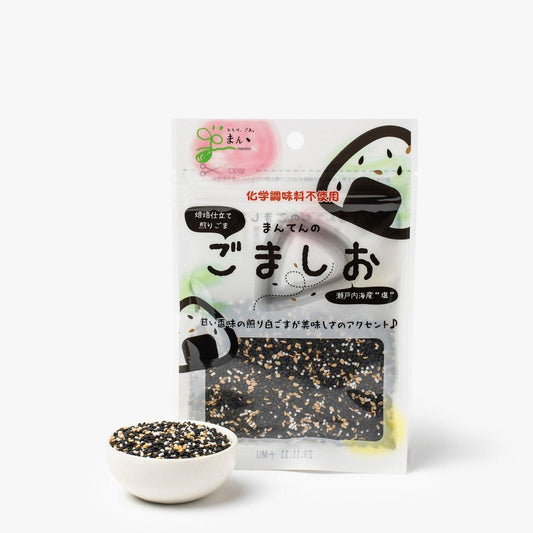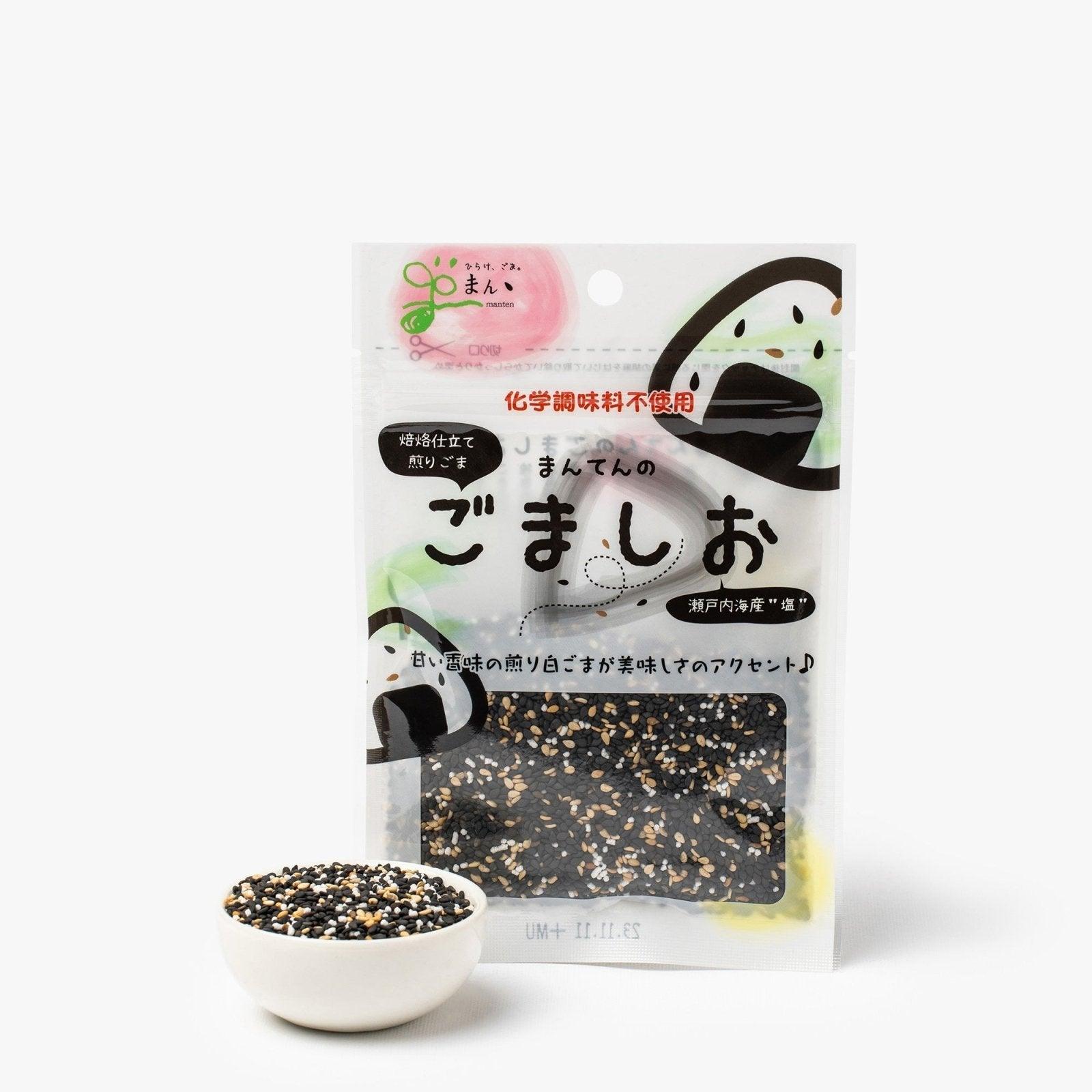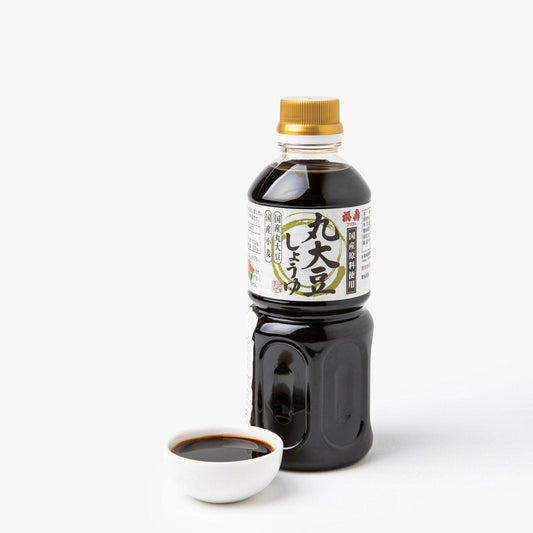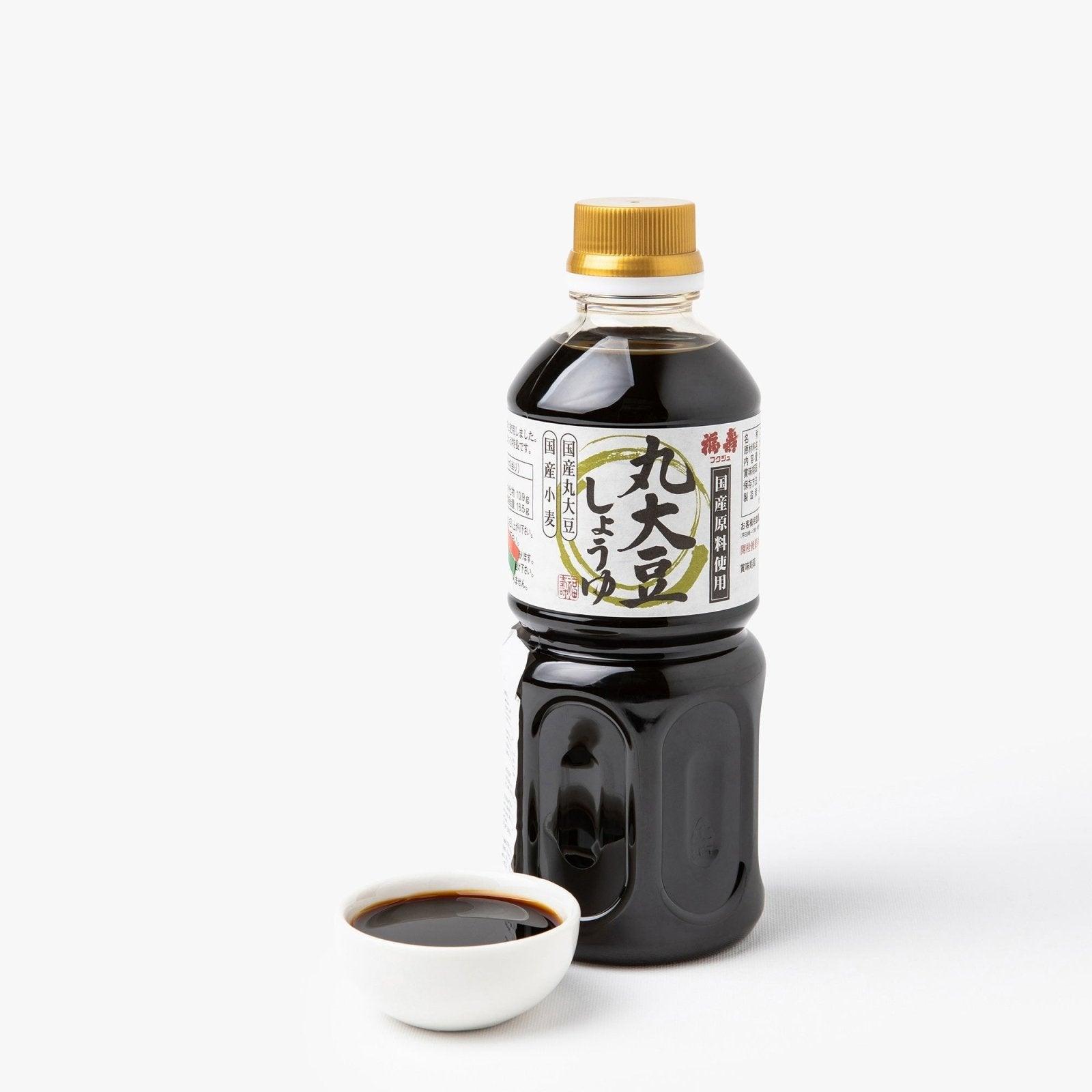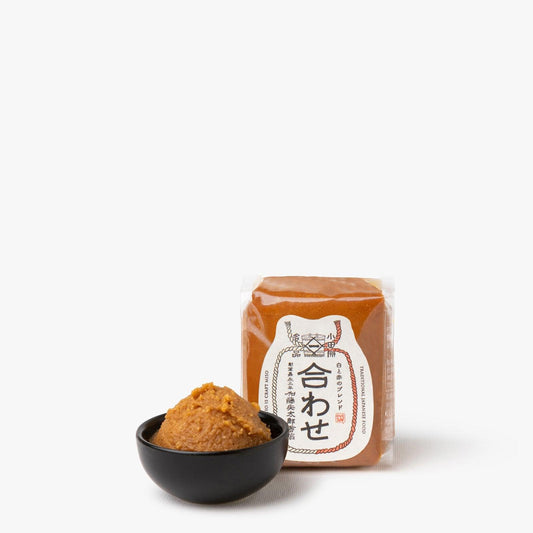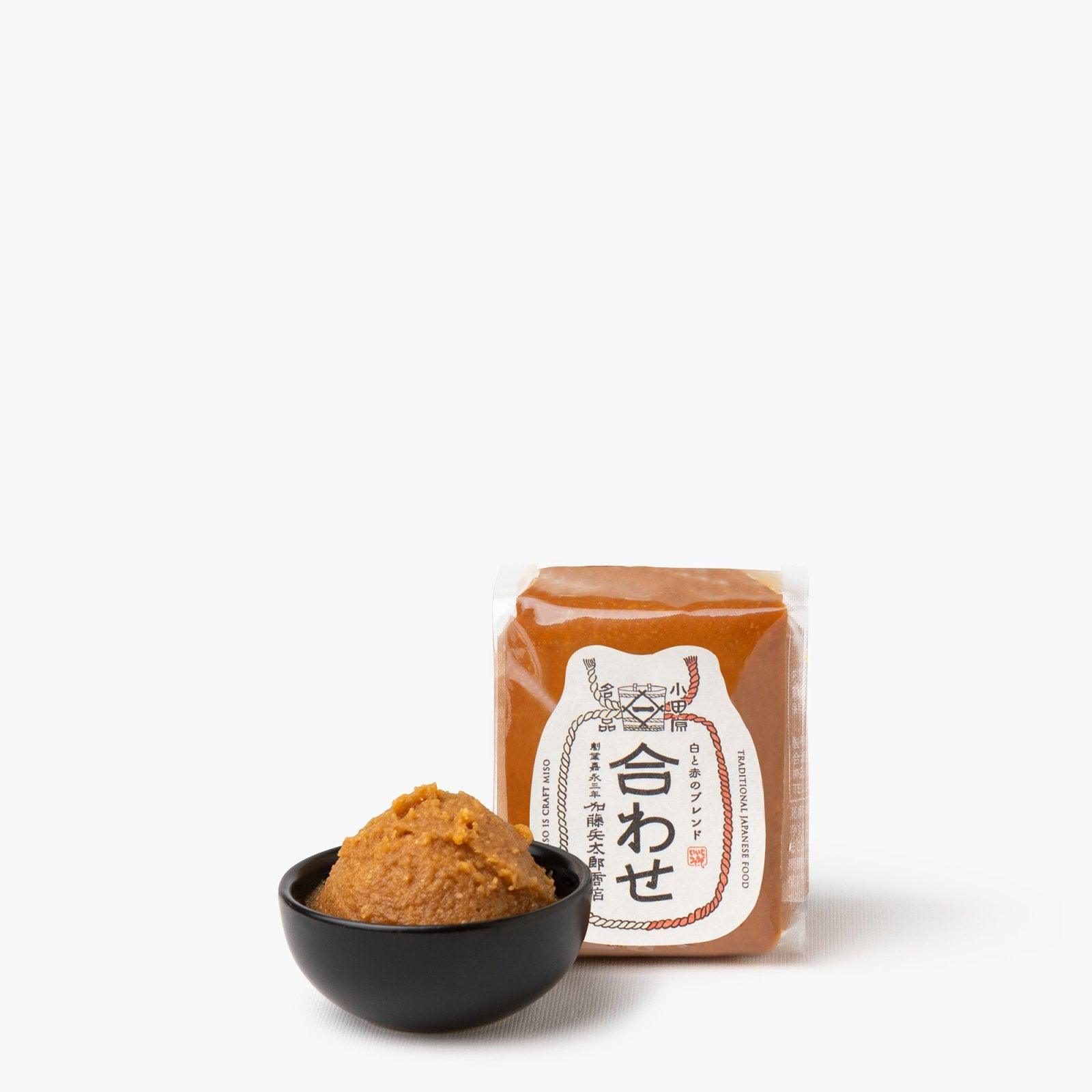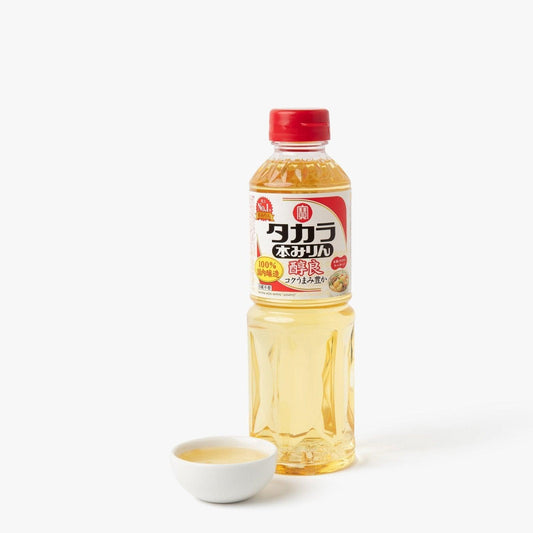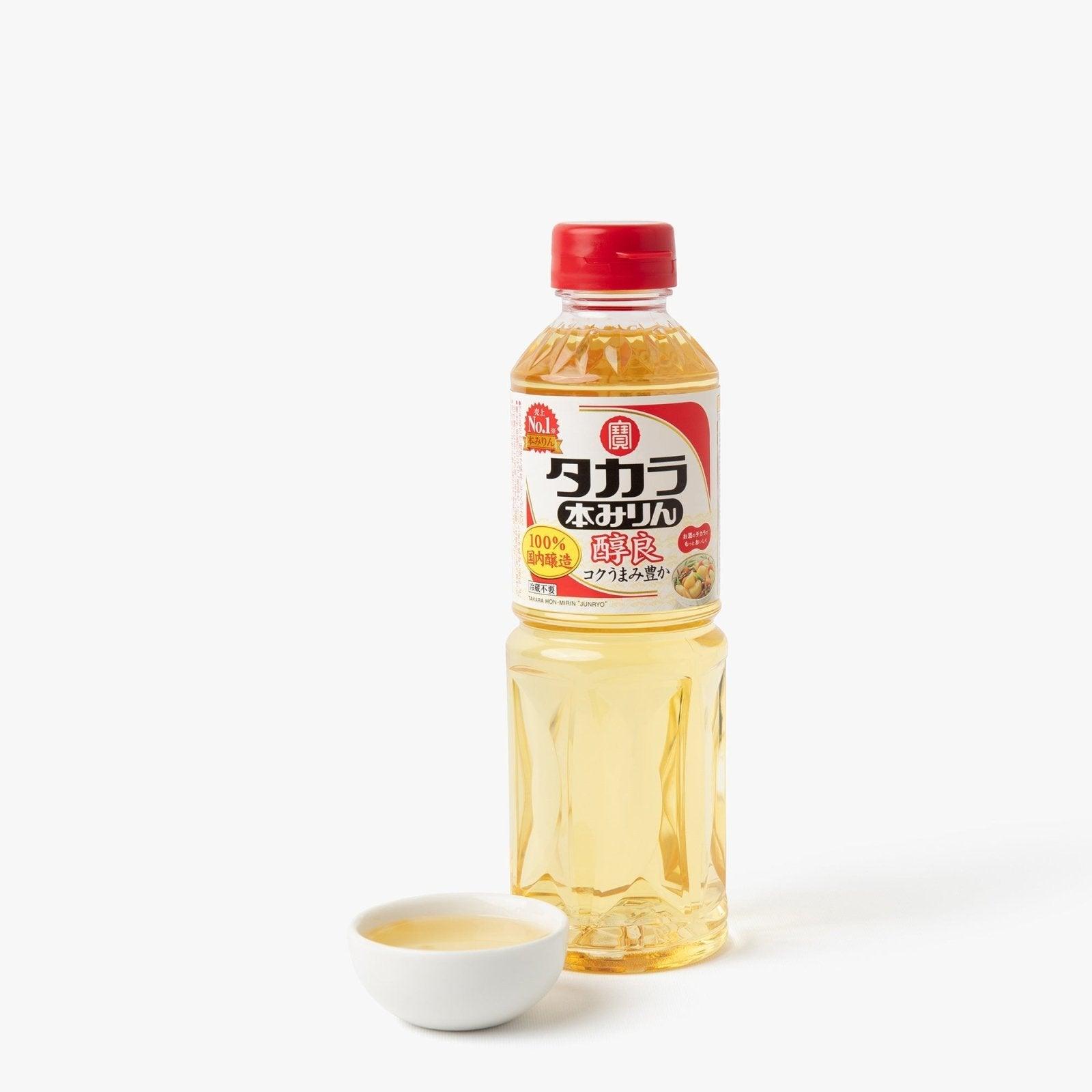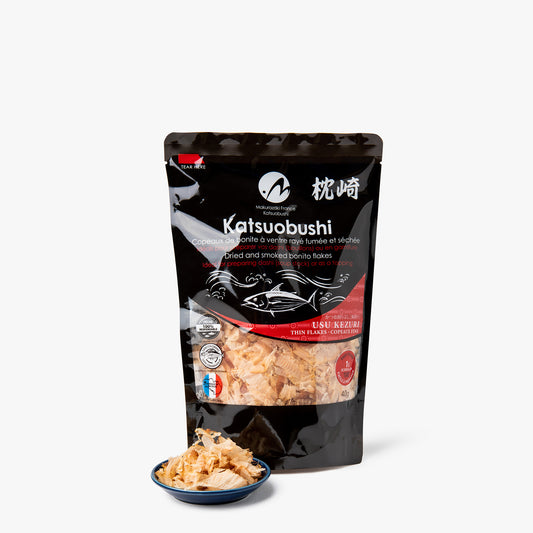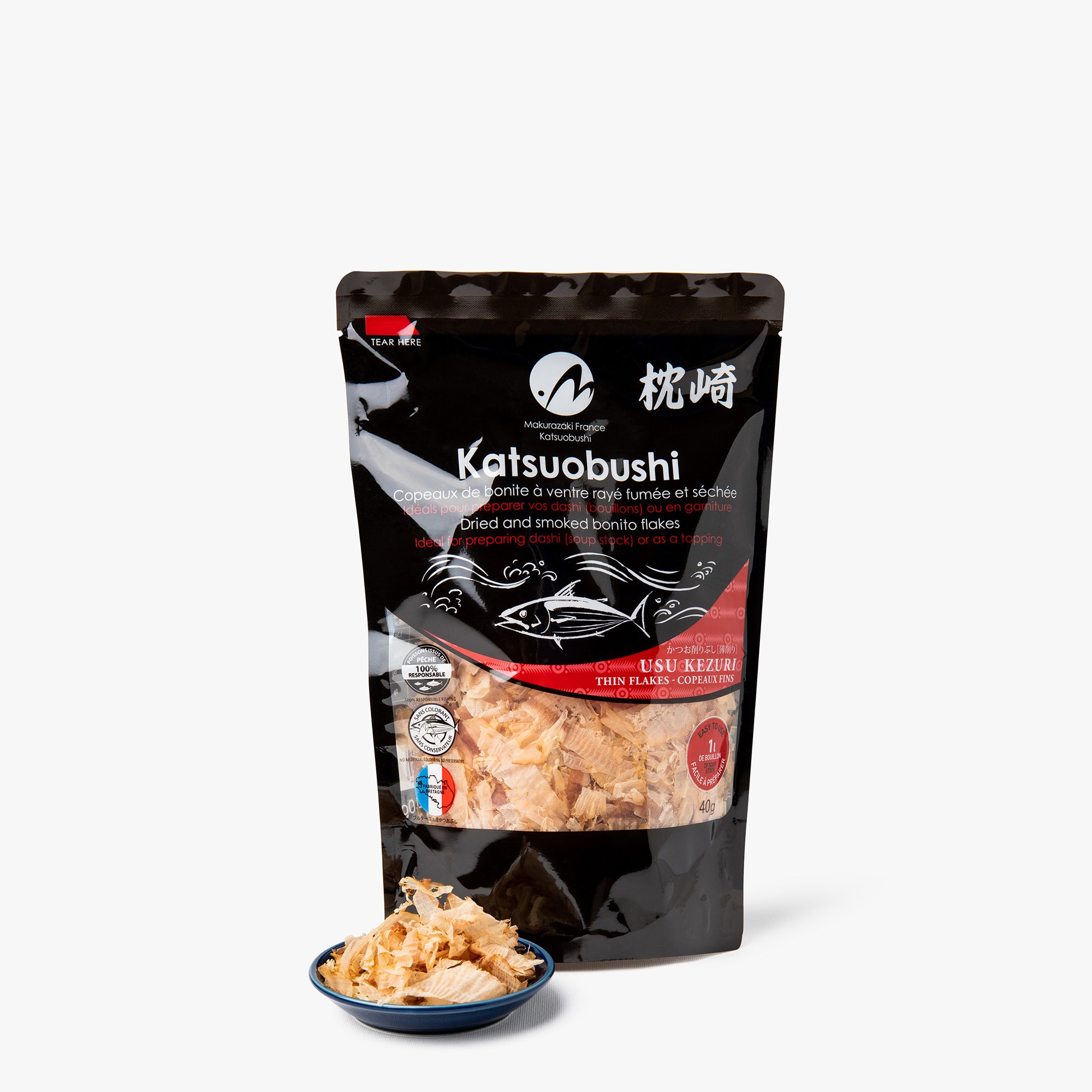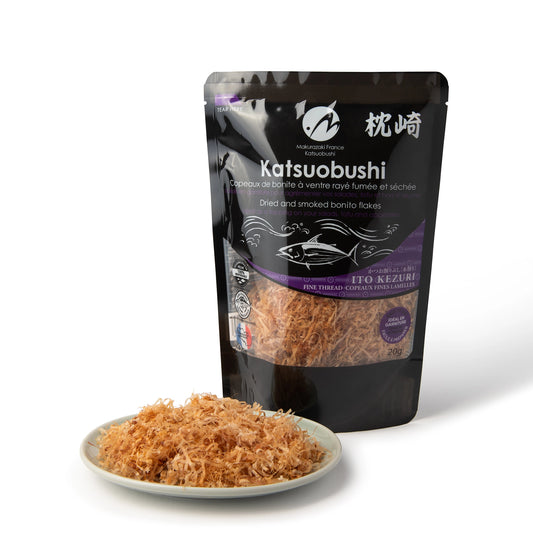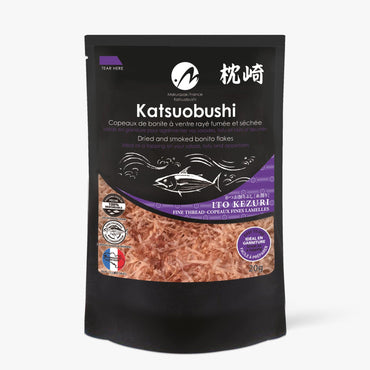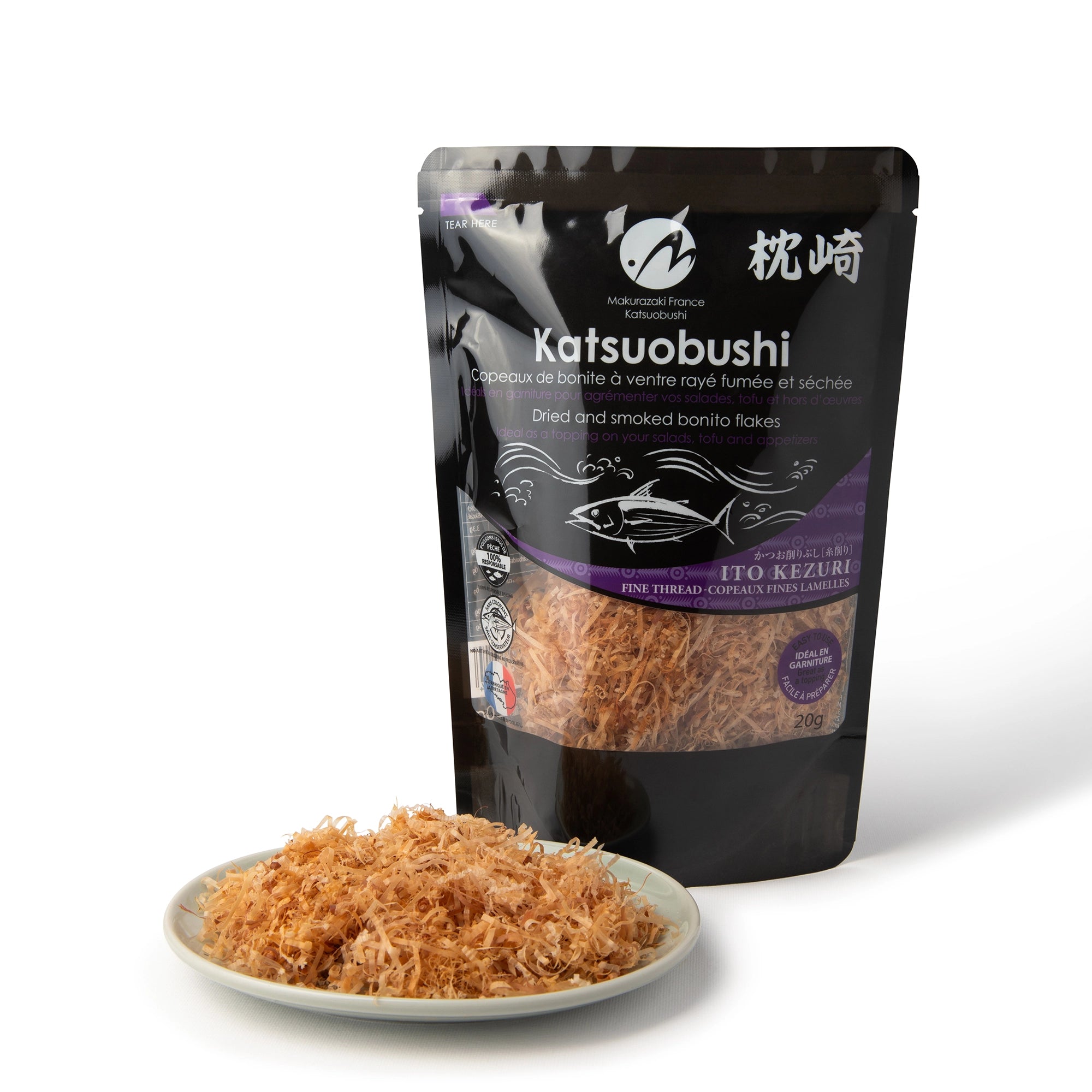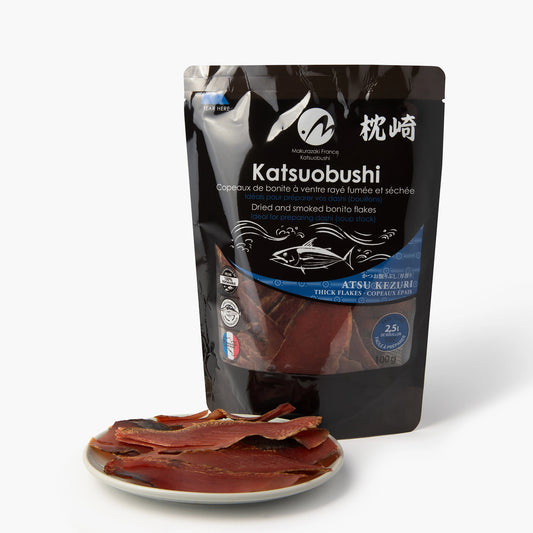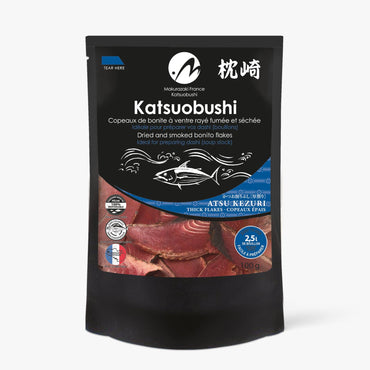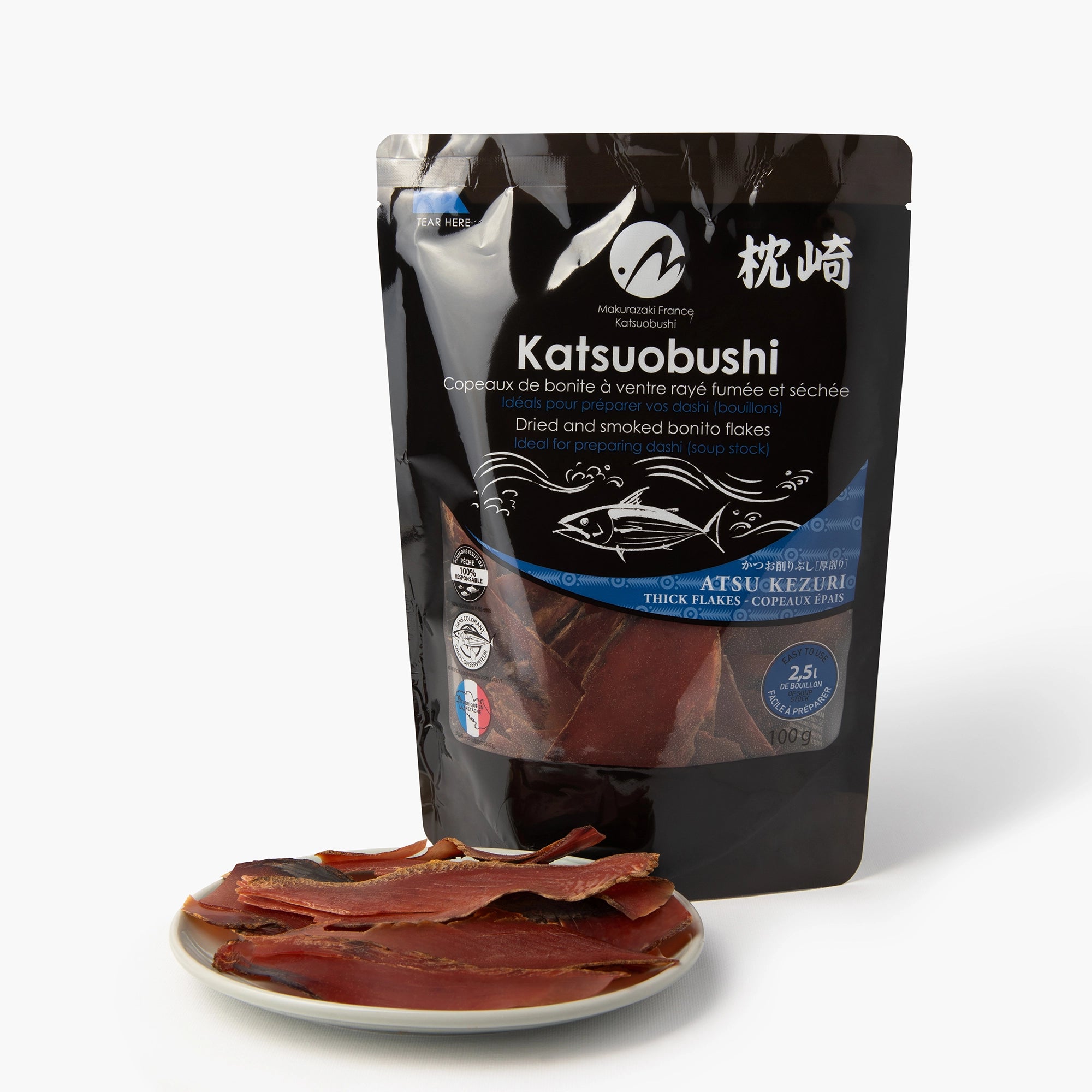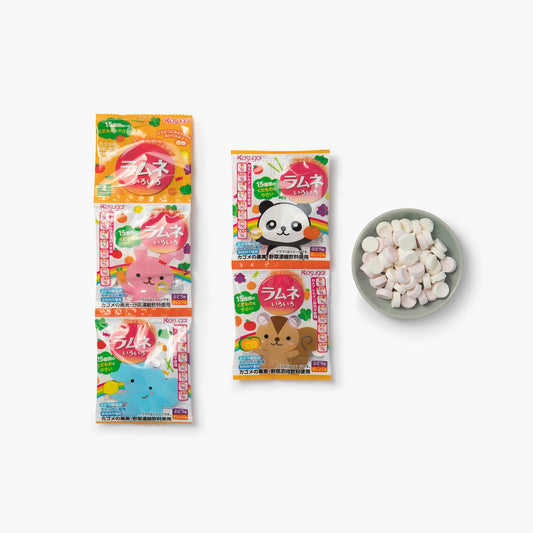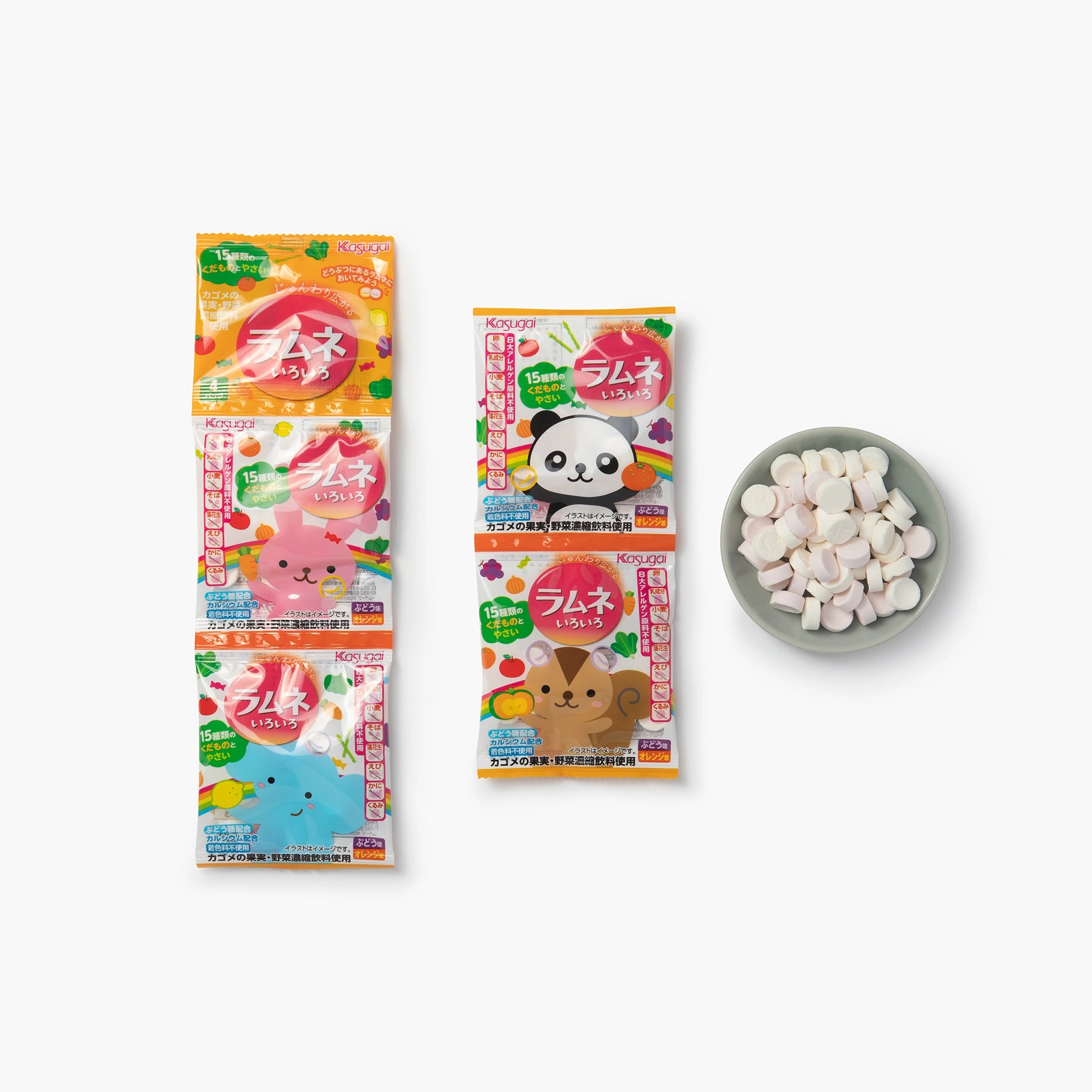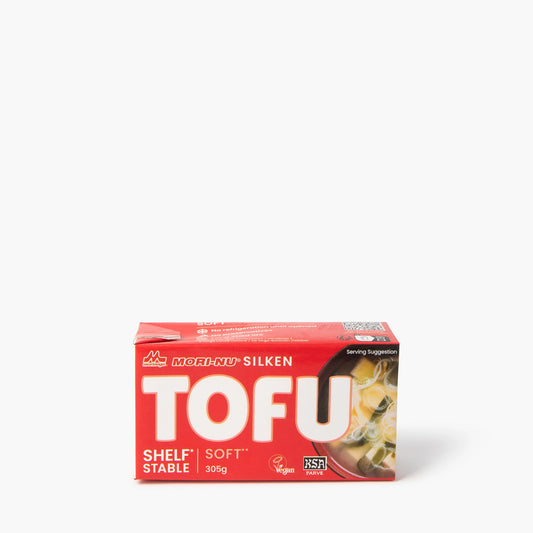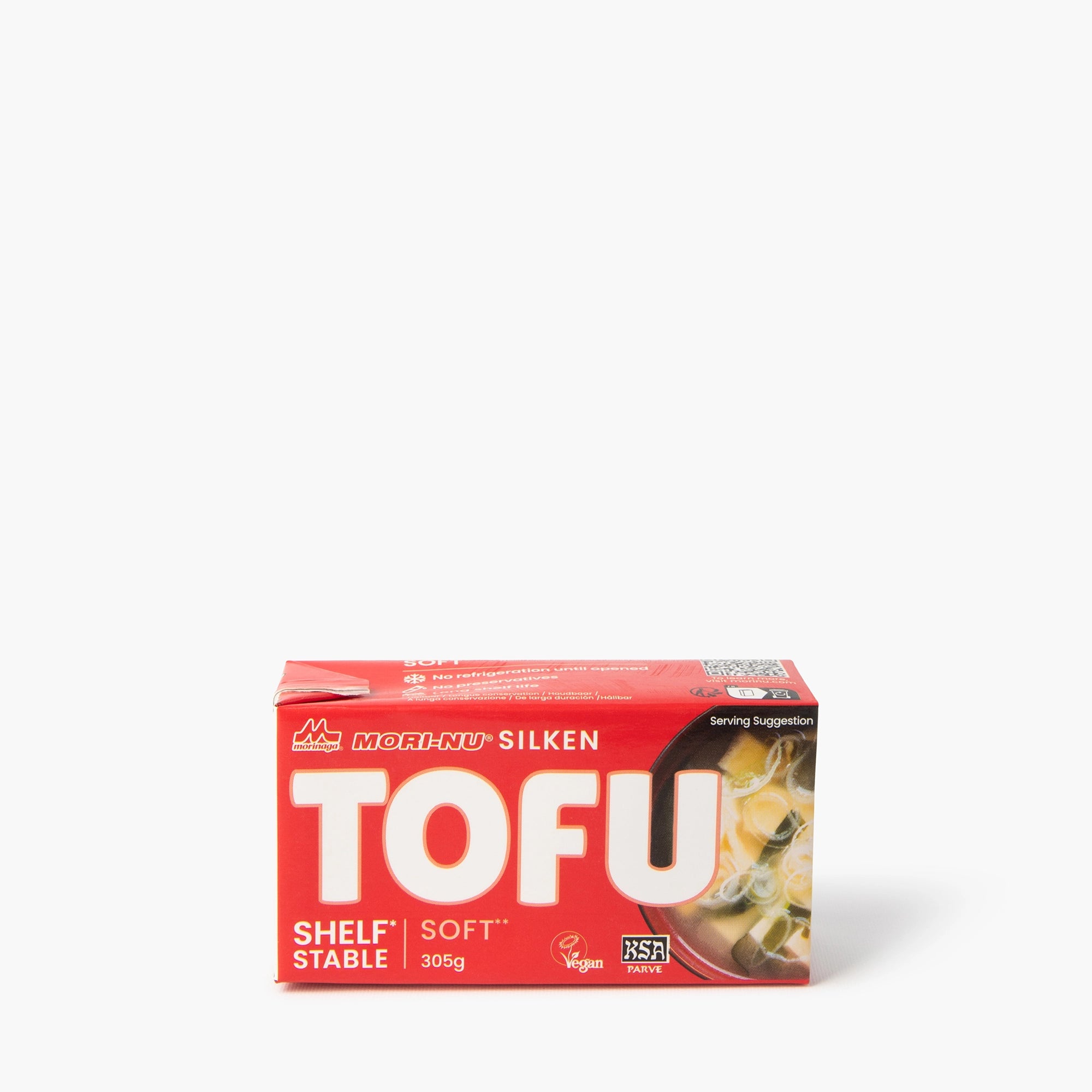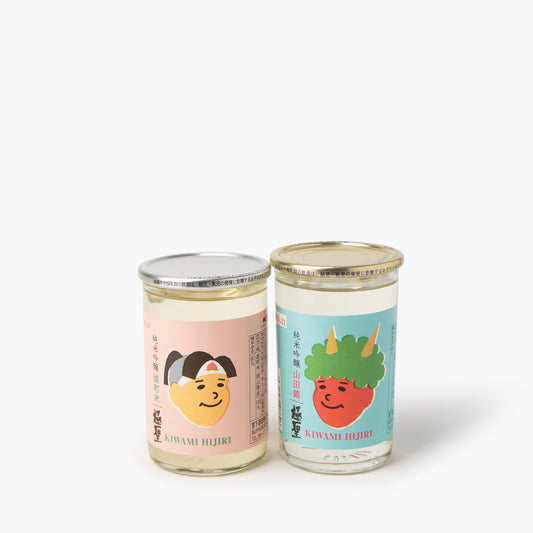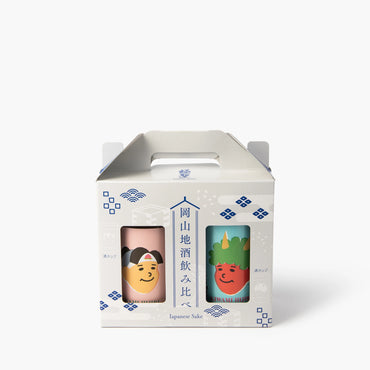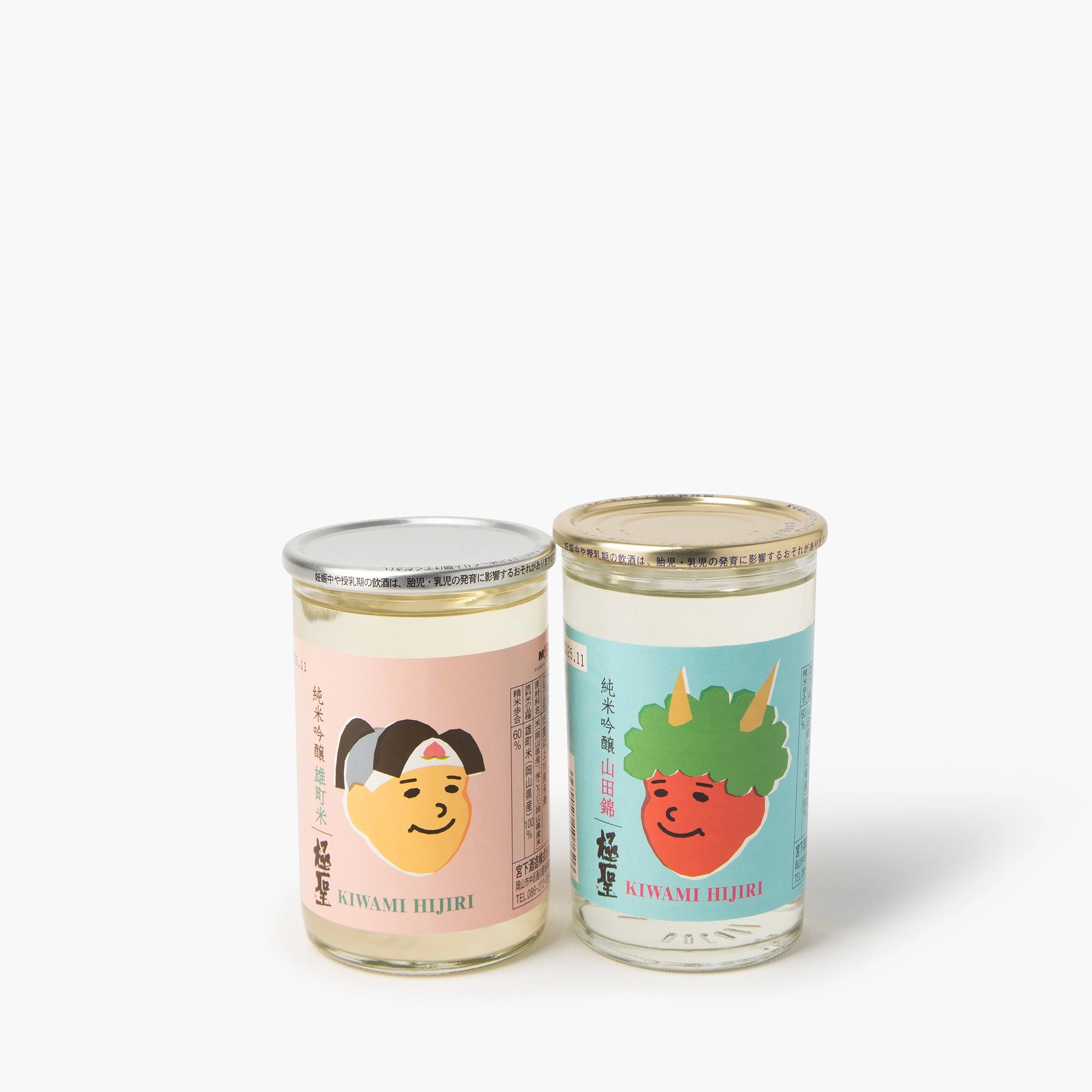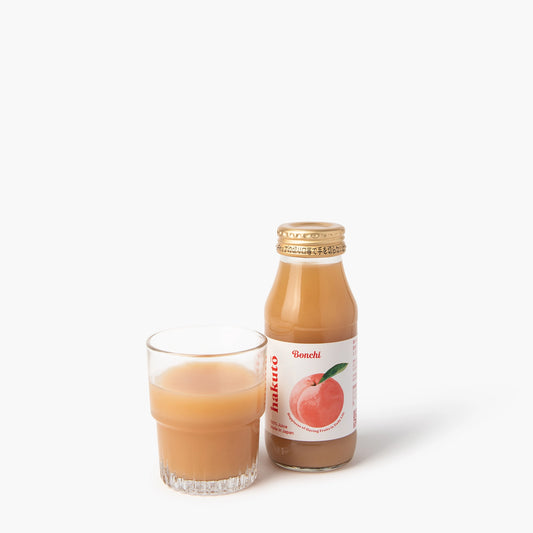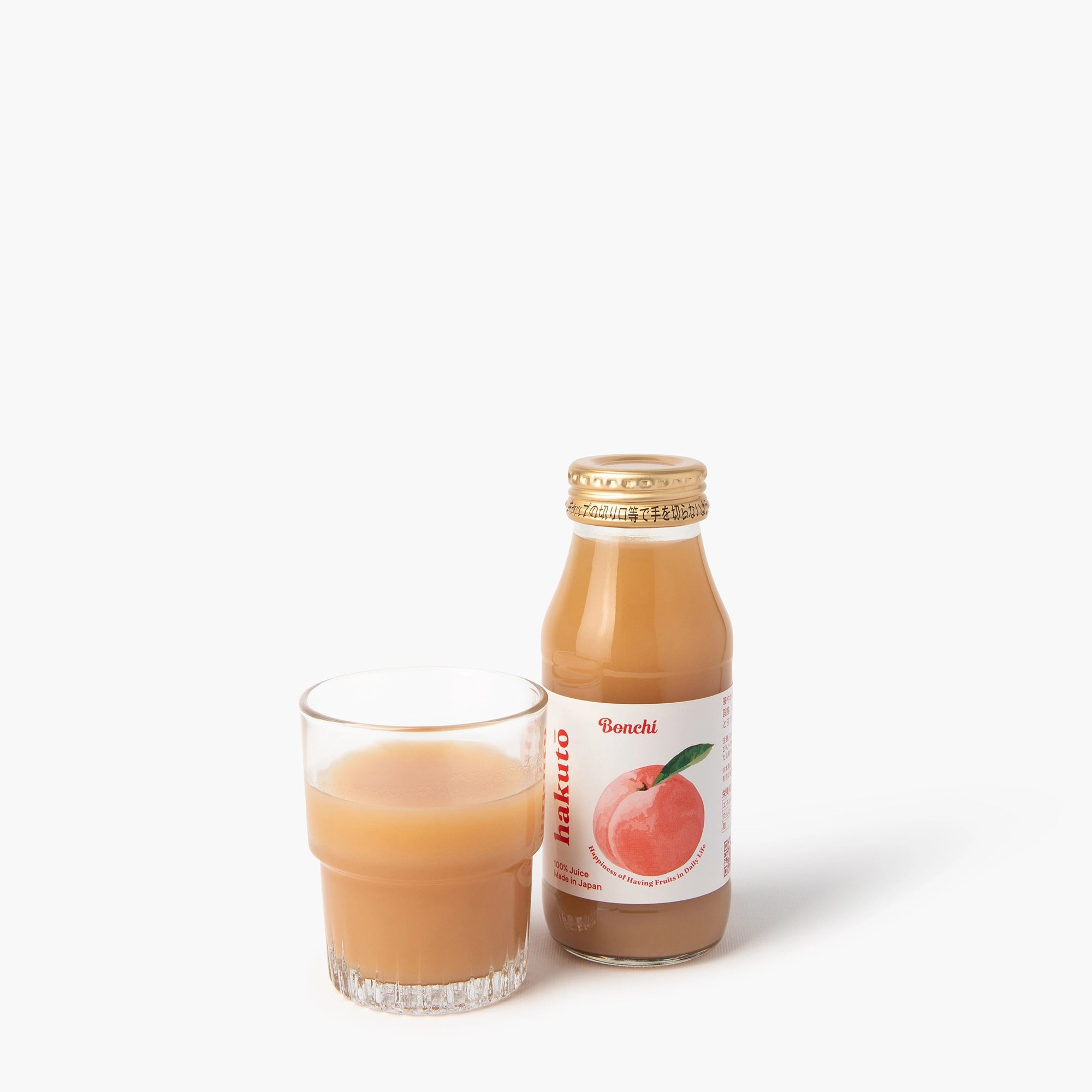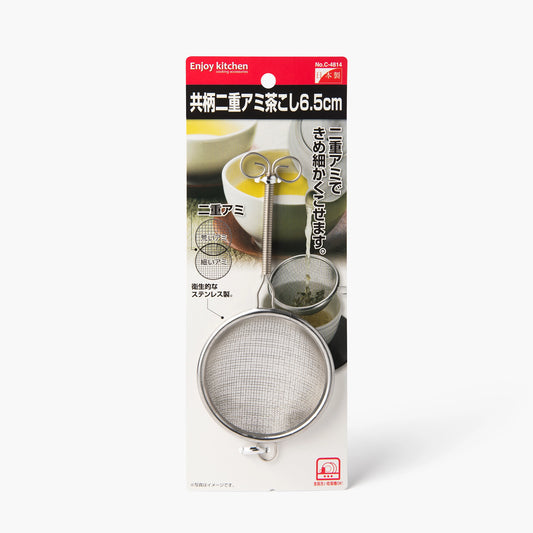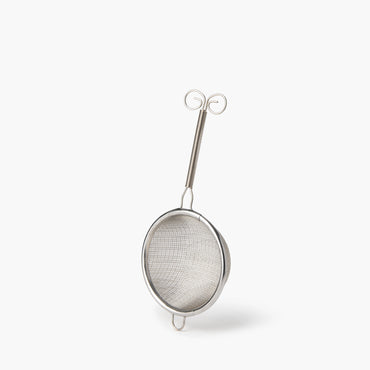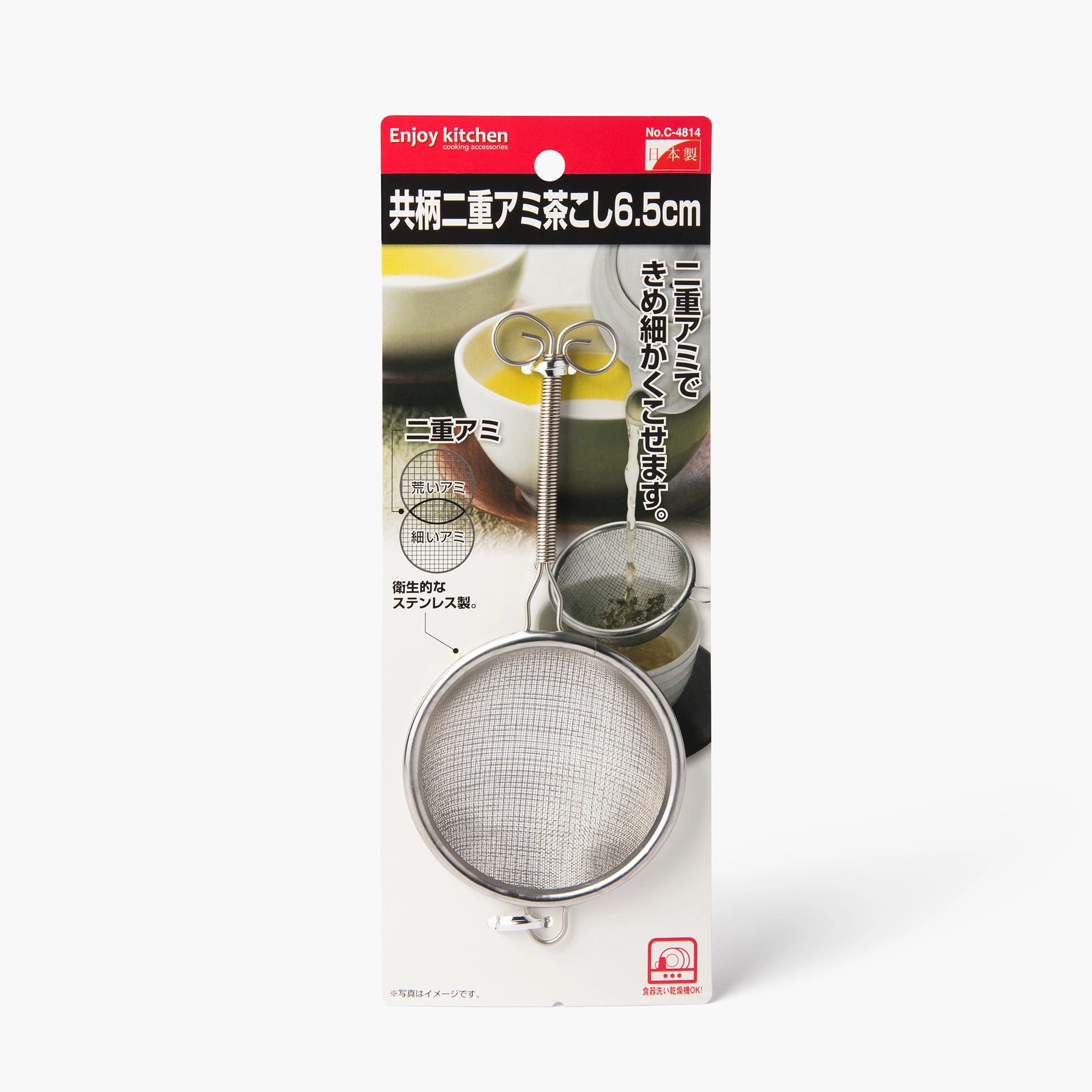Home-made Dashi recipe
Rated 3.2 stars by 21 users.
Kitchen
Japanese dashi
Portion
1L
Preparation time
5 minutes
Cooking time
20 minutes
Dashi is an essential ingredient in Japanese cuisine! It is used in most broths and forms the basis of many traditional Japanese dishes. This aromatic broth, rich in umami flavors, is prepared by infusing natural ingredients such as dried bonito flakes (katsuobushi) and seaweeds (kombu) in hot water. Dashi can also be found commercially as a ready-to-use powder, which simply needs to be rehydrated with boiling water.

Ingredients
Instructions
Wipe the kombu with a damp cloth to remove any white residue. Do not rinse to preserve the umami.
Place the dried shiitake and kombu in a saucepan with 1 liter of cold water. Soak for 1-2 hours (or overnight for a more intense flavor).
Heat slowly over medium-low heat until the water reaches around 80-90°C (just before boiling).
Remove the kombu before the water starts boiling to avoid giving your broth a bitter taste.
Turn off the heat and add the katsuobushi - dried bonito flakes - and leave to infuse for 2-3 minutes, until the bonito flakes fall to the bottom of the pan.
Remove the shiitake mushrooms once they are well rehydrated and set aside for another use.
Strain the broth through a fine sieve or clean cloth to remove the katsuobushi. Squeeze lightly to extract maximum flavor.
Use or store dashi in an airtight container in the refrigerator (2-3 days max).
Recipe notes
Conservation:
Store dashi in an airtight jar in the refrigerator. It will keep for 2 to 3 days maximum.
It can also be frozen in ice cube trays for easy portioning.
Variations and tips:
- Add a little sake and mirin for a more balanced dashi.
- For 100% vegetarian dashi (shojin dashi), replace the katsuobushi with more dried shiitake or dried mushroom shavings.
- Reuse the kombu to make niban dashi (a second, lighter extraction), or cut into small pieces to add to a salad.
Dashi: the fundamental broth of Japanese cuisine
Dashi is an essential basic broth in Japanese cuisine. Unlike Western broths, which often take a long time to prepare, dashi is quick to make and rich in umami, the fifth flavor that adds depth and roundness to dishes.
There are several types of dashi, but the most common is made with kombu and katsuobushi. This broth is the cornerstone of many Japanese dishes, including :
- Miso soup, where it serves as a base before adding miso paste ingredients such as tofu and seaweeds.
- Ramen and udon, where it enriches the noodle broth.
- Tamagoyaki (Japanese omelettes), which get all their lightness and flavor from a drizzle of dashi in the egg mixture.
- Sauces and seasonings, such as ponzu sauce or dashi vinaigrette.
Katsuobushi: an emblematic Japanese ingredient
Katsuobushi is made from bonito (a fish closely related to tuna), which is boiled, smoked, fermented and dried until extremely hard. It is then grated into fine shavings, which release an intense, smoky flavor.
Katsuobushi can be found in many preparations:
- Sprinkle on hot dishes like okonomiyaki (Japanese pancakes) or takoyaki (octopus dumplings), where the shavings seem to "dance" under the effect of the heat.
- Infused in hot water to make dashi, bringing incomparable depth of flavor.
- Mix with soy sauce to enhance white rice or vegetables such as spinach or green beans.
Why is dashi so important?
Dashi is the heart of umami in Japanese cuisine. Thanks to the combination of kombu's natural glutamate and katsuobushi's nucleotides, it creates a synergy that enhances all the other ingredients in a dish. That's why a simple dashi broth can transform a recipe into a veritable explosion of flavors.
Our recommendations for this recipe:
Japanese cooking essentials
-
White miso with koji from Hakone ⋅ Kato Heitaro shoten ⋅ 200g
Regular price 5.50 €Prix promotionnel 5.50 € Regular pricePrice per unit 27.50 € / per kg -
Roasted black and white sesame seeds with gomashio salt ⋅ Manten ⋅ 30g
Regular price 2.65 €Prix promotionnel 2.65 € Regular pricePrice per unit 88.33 € / per kg -
Artisanal balanced soy sauce ⋅ Asarisasuke Shoten ⋅ 500ml
Regular price 6.25 €Prix promotionnel 6.25 € Regular pricePrice per unit 12.50 € / per l -
Hakone Awase miso blend of white and red miso ⋅ Kato Heitaro shoten ⋅ 200g
Regular price 5.50 €Prix promotionnel 5.50 € Regular pricePrice per unit 27.50 € / per kg -
Honmirin ⋅ Takara Shuzo ⋅ 13% ⋅ 500ml
Regular price 9.70 €Prix promotionnel 9.70 € Regular pricePrice per unit 19.40 € / per l -
Katsuobushi dried bonito chips ⋅ Makurazaki ⋅ 40g
Regular price 9.50 €Prix promotionnel 9.50 € Regular pricePrice per unit 237.50 € / per kg -
Tatsuno Smoked Soy Sauce ⋅ Suehiro Soy Sauce ⋅ 100ml
Regular price 8.10 €Prix promotionnel 8.10 € Regular pricePrice per unit 81.00 € / per l -
White rice milky queen from Toyama ⋅ Nanohana ⋅ 1kg
Regular price 19.50 €Prix promotionnel 19.50 € Regular pricePrice per unit 19.50 € / per kg
The latest arrivals
-
Bonito filaments katsuobushi ⋅ Makurazaki ⋅ 20g
Regular price 8.90 €Prix promotionnel 8.90 € Regular pricePrice per unit 445.00 € / per kg -
Thick katsuobushi bonito chips ⋅ Makurazaki ⋅ 100g
Regular price 17.30 €Prix promotionnel 17.30 € Regular pricePrice per unit 173.00 € / per kg -
Ramune candies in garland bag ⋅ Kasugai ⋅ 28g
Regular price 2.60 €Prix promotionnel 2.60 € Regular pricePrice per unit 92.86 € / per kg -
Silken tofu ⋅ Morinaga ⋅ 305g
Regular price 3.50 €Prix promotionnel 3.50 € Regular pricePrice per unit 11.48 € / per kg -
Strong Zero Lemon ⋅ 9% ⋅ 350ml
Regular price 4.50 €Prix promotionnel 4.50 € Regular pricePrice per unit 12.86 € / per l -
Okayama no Chi Junmai Ginjo Sake Gift Set ⋅ 15.5% ⋅ 360ml
Regular price 21.90 €Prix promotionnel 21.90 € Regular pricePrice per unit 60.83 € / per l -
Pure peach juice from Yamanashi ⋅ Bonchi ⋅ 180ml
Regular price 5.90 €Prix promotionnel 5.90 € Regular pricePrice per unit 32.78 € / per l -
Stainless steel tea strainer ⋅ Pearl life
Regular price 5.40 €Prix promotionnel 5.40 € Regular pricePrice per unit / per



